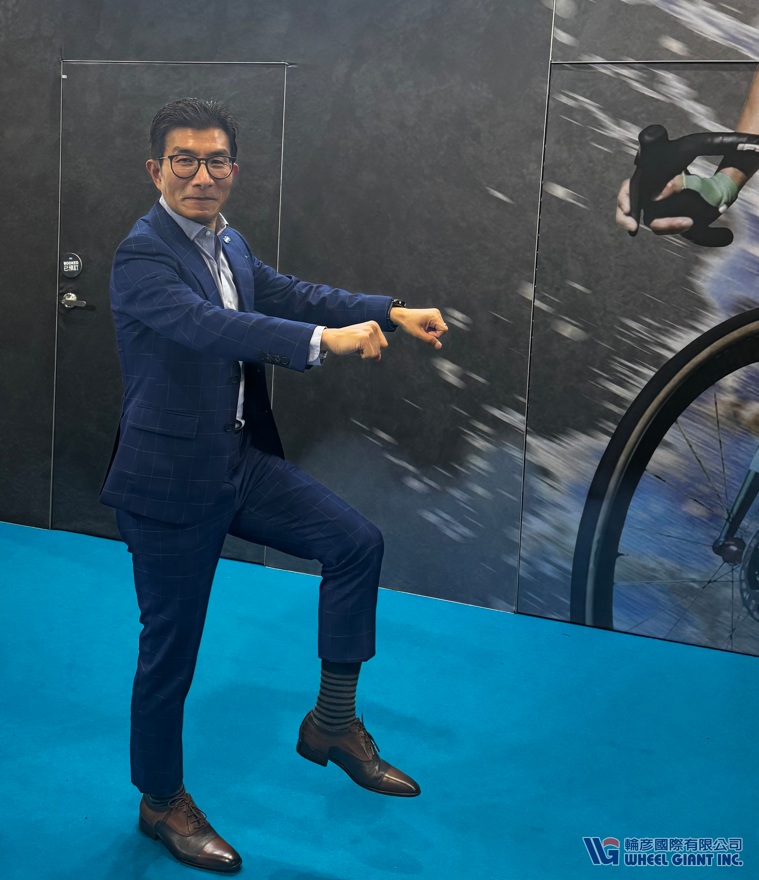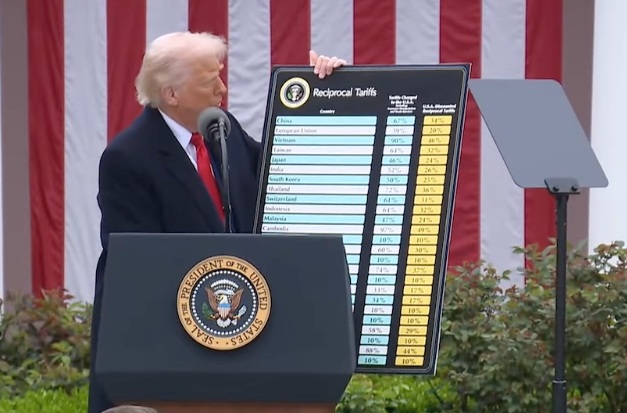Text: Daphne Chen from Wheel Giant
On April 2, 2025, U.S. President Donald Trump announced an executive order called "Liberation Day" at the White House. The order states that the U.S. will impose a minimum 10% "baseline tariff" on all imported goods, and will apply up to 50% "reciprocal tariffs" on several trade deficit countries. Specifically, a 32% tariff will be imposed on Taiwanese goods, 34% on Chinese goods, with an expanded tariff measure targeting exports from the EU, Japan, India, Southeast Asia, and others. The baseline tariffs were officially implemented on April 5.
Global Market Response
This move triggered significant global market fluctuations. Major U.S. stock indexes plummeted, with the S&P 500 falling 6%, the Dow Jones Industrial Average dropping 5.5%, and the Nasdaq slipping 5.8%. Stock markets in other countries were also affected, with Germany's DAX index falling over 5%, the UK's FTSE 100 down nearly 4%, and France's CAC 40 suffering similar losses.
According to some media analysis, "Trump's tariff policy is a global storm. Tariffs are set at 50% for Lesotho, 49% for Cambodia, 46% for Vietnam, but only 20% for the EU, and 10% for the UK and Singapore. This seemingly asymmetric tariff distribution hides Trump's hidden calculation: focusing on service trade to protect America's global service industry advantage while pressuring the return of manufacturing to the U.S. Trump's tariff logic is not purely trade protectionism but a strategy prioritizing service trade."
Impact on Taiwan's Bicycle Industry
For Taiwan, Trump's tariff policy presents a direct impact. Taiwan's bicycle industry has production bases in China and several Southeast Asian countries, where tariff rates are generally higher than in Taiwan. The following are the new tariff rates for key countries and regions as provided by the Taiwan Bicycle Association (TBA):
Taiwan: Regular bicycle tariff 42%, electric bicycle tariff 32%
Vietnam: Regular bicycle tariff 57%, electric bicycle tariff 46%
Cambodia: Regular bicycle tariff 60%, electric bicycle tariff 49%
China: Regular bicycle tariff 11+25+10+10+34=90% (with the potential addition of a 25% Venezuelan oil penalty tariff, this could rise to 115%); electric bicycle tariff 0+25+10+10+34=79% (with the same Venezuelan oil penalty tariff, this could rise to 104%)
Indonesia: Regular bicycle tariff 43%, electric bicycle tariff 32%
EU: Regular bicycle tariff 31%, electric bicycle tariff 20%
Philippines: Regular bicycle tariff 28%, electric bicycle tariff 17%
UK, Brazil, Turkey, Argentina: Regular bicycle tariff 21%, electric bicycle tariff 10%
Trump's "reciprocal tariffs" policy is expected to significantly reshape global trade patterns, potentially leading to a new wave of production relocations. Industry players will need to closely monitor policy changes and adjust supply chain strategies accordingly. At the same time, through technological innovation and upgrading, companies can increase product value and enhance market competitiveness.
Taiwan Government's Five Key Response Strategies
In response to the U.S.'s 32% high reciprocal tariff on Taiwanese goods, President Lai Ching-te has outlined five key strategies to mitigate the impact on Taiwan's economy and strengthen economic cooperation with the U.S. and other countries:
1. Negotiation to Improve Tariffs: A negotiation team has been established to discuss tariff reductions with the U.S., expand procurement, and increase investments in the U.S. Additionally, efforts will be made to address non-tariff trade barriers and high-tech product export controls.
2. Industry Support Plan: Immediate support and assistance will be provided to affected industries, particularly traditional industries and SMEs, to help with transformation and upgrading.
3. Medium- and Long-term Economic Development Plan: Cooperation with allied countries will focus on opening up new markets and strengthening the integration of industry supply chains. Taiwan's strengths in semiconductor manufacturing, ICT, and other sectors will be leveraged to promote smart manufacturing and AI industry development.
4. Taiwan +1: Taiwan will focus on strengthening its investment environment, encouraging more investments in Taiwan, and enhancing industrial cooperation with the U.S.
5. Industry Listening Tour: The government will closely cooperate with the industry to listen to their concerns, adjust policies in line with industry needs, and ensure that strategies are more targeted.
President Lai emphasized that Taiwan has strong economic resilience and, with appropriate responses and collaboration, Taiwan can overcome this challenge and achieve continued economic growth.
TBA’s "Fortune Seeking and Disaster Avoidance" Strategies
TBA Chairman Robert Wu urged the government to actively consider tax reductions to create negotiation space with the U.S. and reduce the impact of tariffs. According to estimates, the new tariffs will reflect in the end-consumer market within 3 to 6 months, with significant price increases and sales slowdowns expected by the third quarter. Wu pointed out that the bicycle industry had originally expected the market to gradually recover in 2025, but the U.S. tariff policy has significantly altered this outlook. In the short term, some orders may return to Taiwan due to tariff differences, but as the tariff impacts on the end market gradually emerge, the market may face slower consumption and order adjustments. In the long run, the industry may face the risk of shifting orders to low-tariff regions.
Robert Wu has proposed two major strategies, "Fortune Seeking and Disaster Avoidance," to respond to this challenge: first, by enhancing product competitiveness and brand image to enter the mid-to-high-end U.S. market, particularly for electric bicycles and smart products; second, by actively expanding into the EU and other emerging markets to diversify risks and reduce dependency on a single market. Furthermore, Wu strongly recommends that the government take the initiative to signal potential tax cuts, creating room for negotiations with the U.S. and reducing the long-term risks of tariff barriers.
TBA calls for the cooperation of industry, government, academia, and research institutions to create a "sustainable, high-quality, cross-regional resilient supply chain." Overall, TBA believes that as long as there is industry cooperation and clear strategies, Taiwan still possesses excellent brand value, product reliability, and innovation capabilities, and can undergo a stable transformation amidst global changes. This tariff change is seen as an opportunity for Taiwan's bicycle industry to transform. Robert Wu emphasized that by enhancing industry competitiveness, supply chain resilience, and integrating global resources, Taiwan's bicycle industry still has the chance to make a successful transformation and maintain its brand value and innovation capabilities in the global market.

TBA Chairman Robert Wu urges: "We are all in this together—let's unite our strength and efforts to enhance industry competitiveness, supply chain resilience, and integrate global resources."
(Photo Credit:Daphne Chen)

Photo Credit:The White House@YouTube









